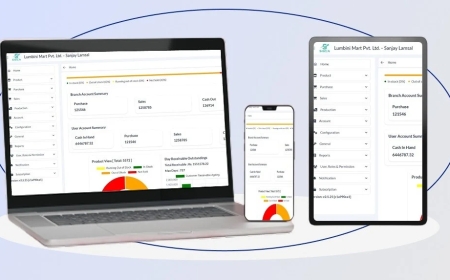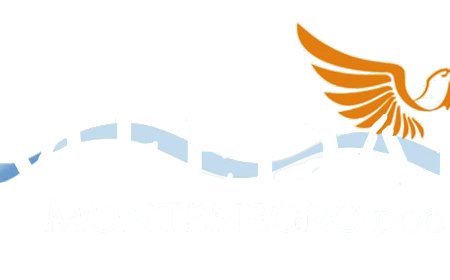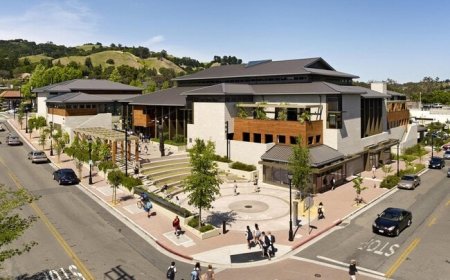Fireproofing Estimating Services for Cost Accuracy

In modern construction, safety and code compliance are just as critical as design and functionality. Fireproofing is one such element that plays a vital role in protecting structural integrity, slowing down the spread of fire, and meeting local building codes. Fireproofing Estimating Services help general contractors, specialty contractors, developers, and estimators assess the cost and scope of applying fire-resistant materials across different structural components.
Whether its intumescent coating on structural steel or cementitious spray fireproofing for columns and beams, accurate estimating ensures all fire-rated assemblies are budgeted correctly and accounted for in project timelines. With code-driven requirements, variable material pricing, and labor-intensive applications, professional estimating services reduce risk, save time, and improve bid precision.
What Are Fireproofing Estimating Services?
Fireproofing estimating services involve the takeoff and pricing of all labor, material, equipment, and related costs required to apply fire-resistant coatings or systems on structural members. These systems are designed to meet fire resistance ratings for steel, concrete, and other substrates.
Key areas included in fireproofing estimates:
-
Intumescent coatings (solvent- or water-based)
-
Cementitious fireproofing (SFRM spray-applied fire-resistant materials)
-
Rigid board fireproofing
-
Firestopping assemblies (penetrations, joints)
-
Required equipment (sprayers, lifts, ventilation)
-
Material staging and access considerations
-
Labor productivity and coverage rates
-
Waste factors and testing requirements
Estimates are based on architectural and structural drawings, UL design listings, and local code requirements, including IBC, ASTM E119, and NFPA standards.
Why Fireproofing Estimating Is Important
Life Safety & Code Compliance
Structural elements must maintain their load-bearing capacity during a fire. Local codes and insurance requirements dictate where and how fireproofing is appliedoften requiring specific fire ratings (1-3 hours).
Scope Accuracy
Missed square footage or underestimating coating thickness can lead to severe cost overruns or failed inspections.
Material Variability
Different systems (e.g., intumescent vs. SFRM) have drastically different costs, application methods, and labor productivity.
Specialized Labor
Fireproofing requires trained installers and proper equipment, which must be accounted for in the labor projection.
Project Sequencing
Fireproofing often must be completed before other trades can proceed, so accurate time and cost estimation helps avoid delays.
Who Uses Fireproofing Estimating Services?
Fireproofing Contractors
To calculate exact material and labor costs and submit competitive bids for subcontracts.
General Contractors
For complete bid packages and comparison across specialty subcontractors.
Developers and Owners
To budget for fireproofing as part of structural and safety systems.
Architects and Engineers
To align fire resistance ratings with design and cost parameters.
Estimators and Quantity Surveyors
To validate subcontractor quotes or create baseline budgets for large-scale projects.
Whats Included in a Fireproofing Estimate?
A comprehensive fireproofing estimate includes:
Takeoffs and Area Calculations
-
Square footage of beams, columns, decks, and walls requiring fireproofing
-
Thickness of applied fire-resistant materials (determined by W/D ratio or UL design)
-
Differentiation between steel, concrete, and other substrates
-
Details from UL design listings for specific fire ratings
Material Selection and Pricing
-
Cementitious SFRM (e.g., Monokote, Cafco, BlazeShield)
-
Intumescent coatings (e.g., Carboline, Sherwin-Williams, PPG)
-
Rigid board insulation systems (e.g., mineral wool, CAFCO board)
Labor Calculation
-
Application rate (SF/hr or bags/day per crew)
-
Adjustments for access difficulty, multiple mobilizations, or shifts
-
Prep time and curing time, especially for intumescent systems
Equipment and Accessories
-
Spray rigs, lifts, scaffolding, ventilation systems
-
PPE, fall protection, masking, and containment materials
-
Site setup and cleanup
Testing and Inspection
-
Field thickness measurements
-
Adhesion or cohesion tests
-
Quality assurance procedures
Reporting Format
-
CSI Division 07 (Thermal and Moisture Protection)
-
Area-based summaries by structural component or level
-
Exportable formats: Excel, PDF, estimating software outputs
This level of detail ensures accurate procurement and proper scheduling.
Fireproofing Systems Covered in Estimating Services
1. Cementitious Fireproofing (SFRM)
Spray-applied to steel, concrete, or decks; typically used in commercial and industrial buildings. Cost-effective and fast to apply.
2. Intumescent Fireproofing
Paint-like coating that expands in high heat to protect steel. Preferred in architectural spaces due to its aesthetic finish.
3. Rigid Board Systems
Mineral board or fire-resistant panels used in mechanical spaces, duct enclosures, or where spray is not feasible.
4. Firestopping
Sealants and devices used around penetrations (e.g., pipes, cables) to prevent fire and smoke spread between compartments.
Each system has unique cost factors, installation needs, and labor productivity rates that must be considered in estimating.
Tools Used in Fireproofing Estimating
Professional estimators use specialized software and digital tools to enhance accuracy:
-
PlanSwift / STACK For digital takeoffs from structural and architectural drawings
-
Bluebeam Revu For detailed markups, layering, and quantity extraction
-
On-Screen Takeoff (OST) For square footage and perimeter measurement
-
Trimble / Sage Estimating For cost analysis and report generation
-
Excel For custom templates and pricing breakdowns
-
RSMeans / Craftsman National construction cost databases with fireproofing pricing
These tools improve consistency and allow fast turnaround on complex projects.
The Fireproofing Estimating Process
Step 1: Review Project Drawings and Specifications
Analyze the structural drawings, UL listings, and local code requirements to identify all fire-rated elements.
Step 2: Perform Quantity Takeoff
Digitally measure areas that require fireproofing. Identify coating thickness based on beam sizes, shapes, and fire rating.
Step 3: Determine System Types
Identify whether SFRM, intumescent, or board systems are specified or optimal based on use and exposure.
Step 4: Apply Material and Labor Pricing
Use current supplier rates and localized labor productivity metrics. Include costs for masking, access, cleanup, and waste.
Step 5: Format and Deliver Estimate
Summarize by scope, material type, level, or building section. Include material lists and labor summaries.
This systematic process ensures no components are missed and that estimates align with the real-world job scope.
Benefits of Fireproofing Estimating Services
Accurate Budgeting
Minimize change orders and overages with precise square footage and material pricing.
Improved Bid Competitiveness
Submit winning bids based on real-world data and tailored cost projections.
Reduced Risk
Avoid code violations, inspection failures, and rework caused by insufficient fire protection.
Scheduling Efficiency
Forecast material lead times, curing times, and crew requirementsimproving project sequencing.
Detailed Procurement Lists
Facilitate efficient ordering and reduce on-site material waste with exact material lists.
Fireproofing estimating services give project stakeholders peace of mind knowing that safety and code compliance are fully budgeted and planned.
Final Thoughts
Fireproofing is more than just a safety measureits a legal and performance-based requirement that must be handled with precision. From commercial towers to hospitals and warehouses, accurate cost estimation of fireproofing is essential for success. Fireproofing Estimating Services offer contractors, estimators, and developers a reliable path to budgeting, bidding, and building with confidence.
With the right data, tools, and expertise, estimators can reduce risk, streamline procurement, and ensure full code compliancewithout compromising project timelines or profits.































